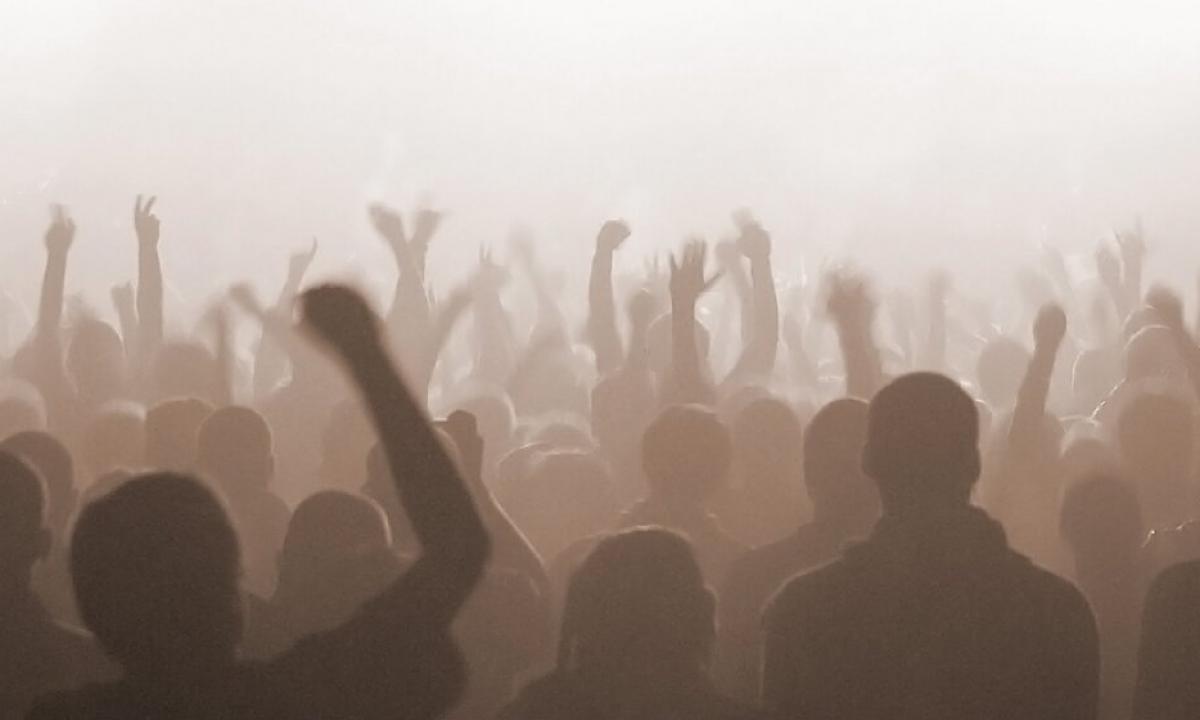Person, as we know, being public. People in the course of activity constantly participate in interactions, thus, creating groups.
The special form of group (or quasigroups) – crowd is known. The interest of scientists in crowd as social psychologically to a phenomenon for the first time appears at the beginning of the XIX century. Now the phenomenon of crowd is actively studied by psychology, sociology, conflictology and some other areas of humanitarian and natural knowledge.
What is crowd?
The crowd is a temporary congestion of people in conditionally closed space with a possibility of direct contacts. Interests and motivation of participants of crowd temporarily coincide therefore different people equally or react a similar image to the same spontaneous external influences and incentives.
Each participant of such group as crowd acts, showing the most primitive instincts, mental impulses and emotions. Joint, kind of coordinated actions of participants, are caused by community of human collective unconscious forms of mentality and the similar device of subconsciousness. Moral and ethical establishments and normal public (and sometimes and personal taboos) in crowd do not work.
General signs of crowd
The modern science knows a set of various classifications of crowd by any given principles.
It is possible to try to mark out the most general signs.
- The deindividualization, that is temporary partial switching off of individual traits of the personality is characteristic of crowd (any kind or type). Mental infection and imitation is strengthened.
- The feeling of a unification (in other words, communities, gregarious instinct) attracts cancellation or easing ethical, and sometimes and precepts of law (sometimes such state is pleasant and desirable to participants).
- Participants have a strong feeling of correctness of the made actions;
- Participation in actions big is spontaneous - organized group exponentiates feeling of own force that kind of causes reduction or full removal of sense of responsibility for the actions made by group.
Involuntarily agitation and nervousness is transferred to each participant of crowd. There is mutually strengthening of emotions and social feelings.
The speech offending political addictions of crowd can become a reason for tension strengthening, group emotional splashes, implementation of uncontrollable and not predicted scenarios with elements of manifestation of violence in various degree.
It is necessary to notice that the unconscious alarm (arising from vague understanding of responsibility for deeds), as a rule, aggravates feelings and an emotional condition of crowd, as a result aggression in relation to the true or imagined enemies increases.
What should I do?
Participation of the individual in actions of crowd is short-term. And here the endured emotional experience and mood can remain, and long enough. Such communications collapse only when influence of new incentives creates a basis for other enough strong emotions.
The crowd (as group) can break up under the influence of such instincts as fear and individual self-preservation and also such feelings as cold, hunger, the sense of humour and strong excitement directed to the new purposes.
As a matter of fact, practical methods of management and technical methods of impact on crowd are under construction on use of this sort of mental mechanisms and the phenomena.

